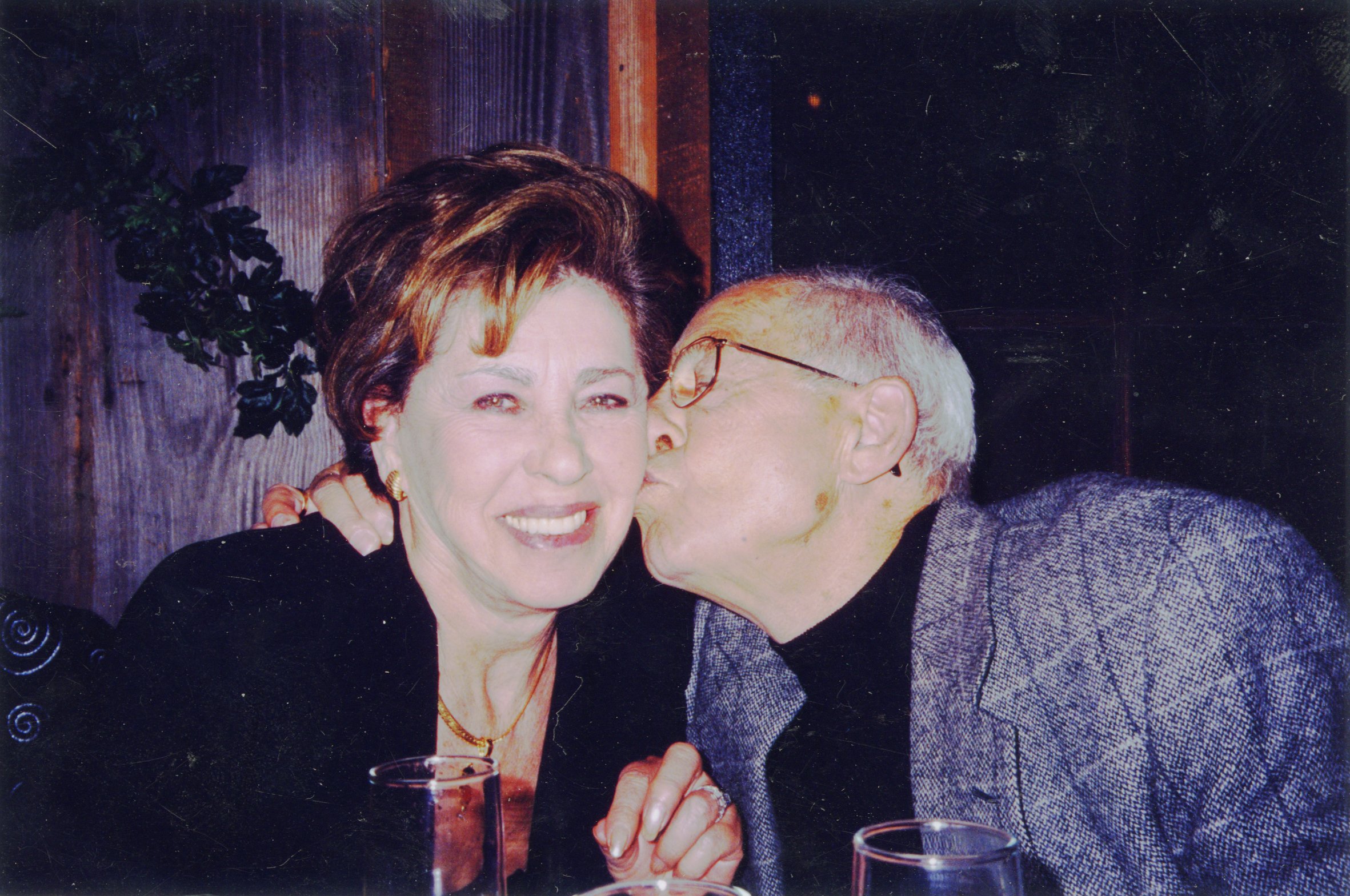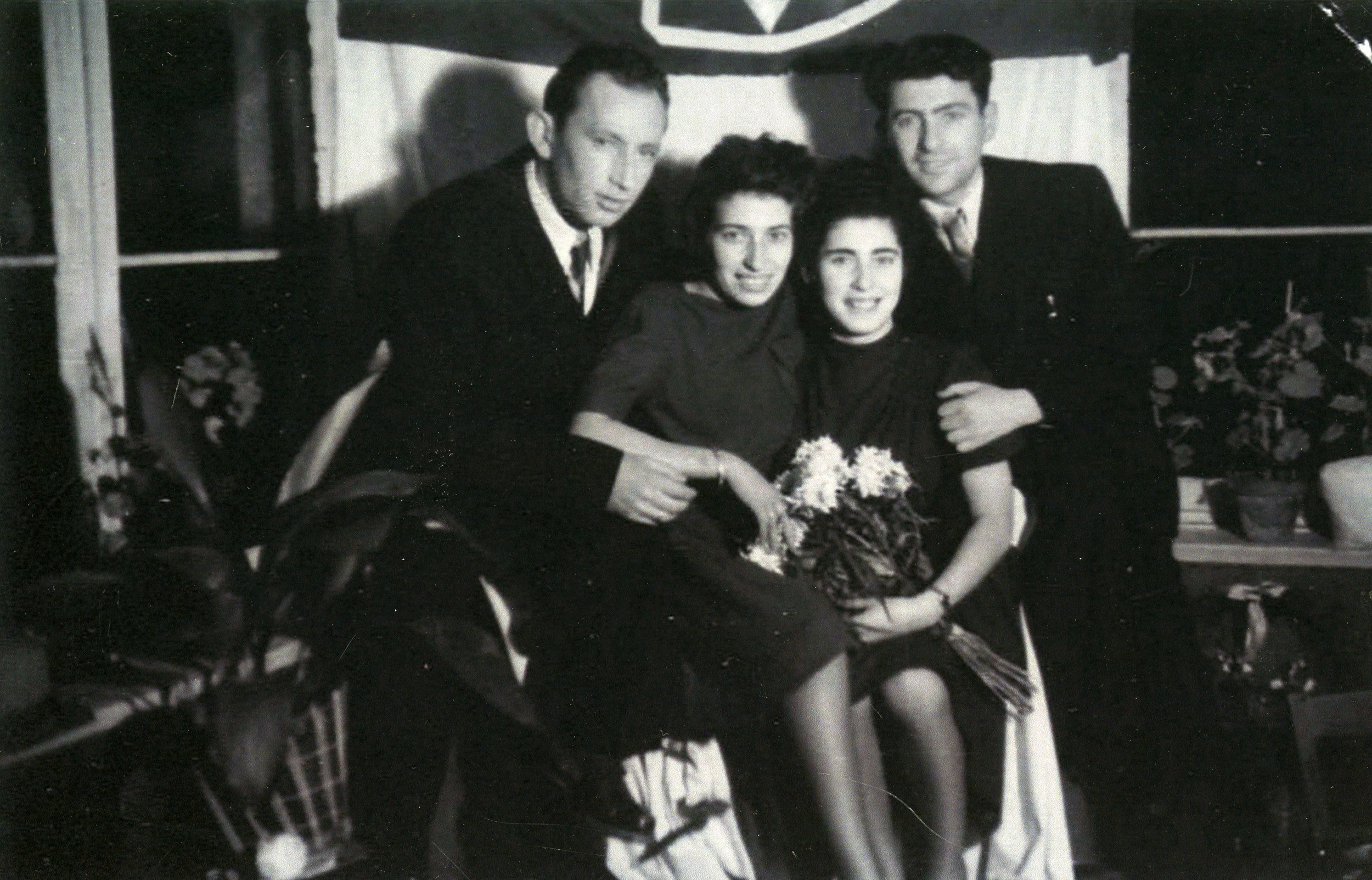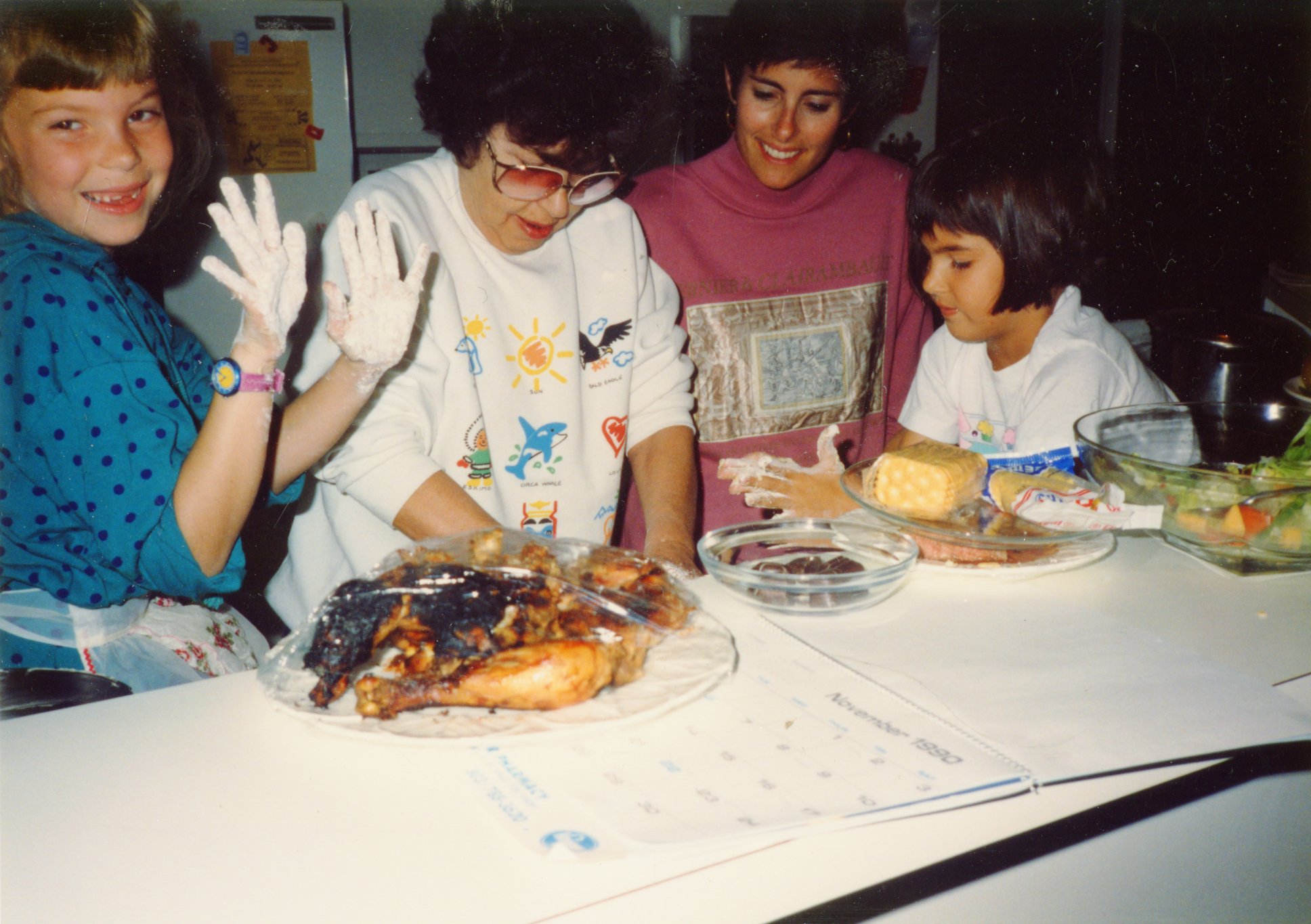Gefilte Fish. You are Going to Remember This
Submitted by Esther Goldberg Greenberg for the Bluma and Felix Goldberg Family
Our parents, Bluma and Felix Goldberg, met in a displaced persons camp after surviving the concentration camps of Nazi Germany. Mom’s sister, Cela, also met her future husband, David Miller, at the camp. The two couples shared a wedding ceremony on July 8, 1946. After applying to emigrate to the United States, Cela and David settled in Columbia, South Carolina, with the help of Hebrew Immigrant Aid Society and the Columbia Jewish Community. After a few months, Mom and Dad also applied to leave Germany along with their baby, Henry. They arrived in Columbia in December 1949. About 10 years later, Dad’s brother, Bernard, left Israel to join our family, along with his wife, Luba, and two children, Esther and Norman. More details about our parent’s past can be found on the website www.storiesofsurvival.org, thanks to the hard work of educator and our dear friend, Frank Baker.
Bluma and Felix Goldberg. Image courtesy Esther Goldberg Greenberg
David and Cela Miller pose with Bluma and Felix Goldberg. Image courtesy Henry Miller
Holidays, especially Rosh Hashanah and Yom Kippur, were a special time for our family. Our parents lost most of their family during the war. We spent most holidays with our aunts, uncles, and cousins. Yiddish was the language of choice in those days, with lots of conversation late into the night around the holiday table. Our parents were so extremely happy to be free and living in the United States. They loved the Columbia Jewish Community and were so thankful to be a part of it. They were determined to give us a loving, happy home, and that is exactly what they did. On one memorable holiday, Dad’s brother Leon visited from Israel. It was wonderful to see Dad and his two brothers reunited, doing their best comedy routine. There was a huge table that extended into the living room. We still talk about memories of that Yontov holiday today.
Brothers Leon, Felix, and Bernard Goldberg. Image courtesy Esther Goldberg Greenberg
Mom worked tirelessly to prepare for our Holiday meals. Many hours were spent preparing gefilte fish, matzoh ball soup with homemade egg noodles and kreplach, chopped liver, brisket, and apple cake. We remember Mom grinding livers by hand to prepare chopped liver, recreating what her Mother had done in Poland. To us, each dish she made was fabulous, and we anticipated the flavors of the holiday meal ahead.
Bluma’s Chopped Liver
1 medium onion
oil
1-pound roasted livers
6 hard-boiled eggs
salt
Brown onions, then add liver and cook until done.
Process though food grinder along with hard-boiled eggs
Mix together well, adding oil and salt to taste.
Bluma’s Kugel
1 large bag extra wide egg noodles(16oz)
1 large container cottage cheese (32 oz)
1 container sour cream (8oz)
6 eggs
2 apples (prefer Macintosh)
2 sticks butter
6 tablespoons sugar
little cinnamon
Preheat oven to 325 degrees.
Butter the pan. Cook noodles. Drain noodles and place in bowl. Slice 1 stick of butter and put in noodles. Slice apples thinly and in small pieces. Then add cottage cheese, sour cream, apples, eggs, sugar, add cinnamon to taste.
Place the noodle mixture in the pan. Cut up the second stick of butter on top of the kugel.
Cook until brown on top, approximately 45 minutes.
Gefilte Fish Recipe
2 lbs. (more or less) white fish, ground (such as pike or haddock). reserve bones
3 eggs
1 cup matzo meal (should be a moist texture)
1 onion finely grated
sugar, salt, pepper to taste
In large bowl mix above ingredients with hands. Bring to boil a large pot with 6-8 cups of water.
Wash well and place fish bones in the pot. Put onions in the pot which have been cut into rings.
Make oval fish shapes and place gently into boiling water. Boil for 2 hours. Cut 8 washed carrots and put into water after fish cooks for 30 minutes.
Cool.
Remove fish pieces carefully and place on large oval plate. Put cooked carrots on top of each piece of fish.
Another great memory was of Mom preparing kreplach with her granddaughters, Leah and Rachel.
Bluma Goldberg with her granddaughters, Rachel and Leah. Image courtesy Esther Goldberg Greenberg
Bluma Goldberg with her daughter, Esther Greenberg, and granddaughters, Leah and Rachel. Image courtesy Esther Goldberg Greenberg
We are blessed to have Mom with us to continue to share the Holidays with her children, grandchildren, and great-grandchildren. Mom and Dad taught us the importance of being together. Tatie, as Dad was called, used to always say “you are going to remember these times.”
We do.
The Goldberg family. Image courtesy Esther Goldberg Greenberg






